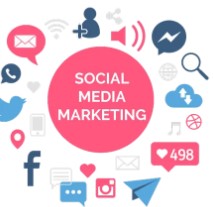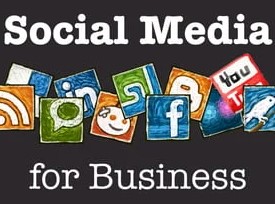Marketing your business online has become a vital component of achieving success. Whether you are a small startup or a well-established enterprise, online marketing provides you with a plethora of opportunities to reach and engage with a global audience. However, with the abundance of tools, platforms, and strategies available, it can be overwhelming to know where to start and how to maximize your online presence.
In this article, we will explore some of the most essential and effective ways to market your business online. These strategies can help you grow your brand, increase sales, and build long-lasting relationships with customers.
1. Build a Professional Website
A professional website is the cornerstone of your online marketing efforts. It serves as your digital storefront and should reflect your brand’s identity, values, and purpose. Your website should be user-friendly, responsive, and optimized for search engines.
Key Features to Consider:
Mobile Optimization: With more consumers accessing websites via smartphones, ensure your website is mobile-friendly.
Fast Load Speed: Slow loading times can frustrate visitors and lead to higher bounce rates.
Clear Call-to-Action (CTA): Make it easy for users to take the next step, whether that’s making a purchase, signing up for a newsletter, or contacting you.
SEO-Friendly Structure: A well-structured site will help search engines like Google crawl and index your content efficiently, improving your chances of ranking higher in search results.
A professional website is not just a place to showcase your products or services; it is a platform for customers to learn more about your business and engage with your brand.
2. Search Engine Optimization (SEO)
Search Engine Optimization (SEO) is one of the most effective ways to market your business online. By optimizing your website and content for search engines, you increase the likelihood of ranking higher in search results, making it easier for potential customers to find you.
Key SEO Practices:
Keyword Research: Identify the keywords and phrases your target audience uses to search for your products or services. Use tools like Google Keyword Planner, Ahrefs, or SEMrush to find high-traffic keywords with low competition.
On-Page SEO: Optimize your website’s individual pages by including relevant keywords in titles, headers, meta descriptions, and URLs. Additionally, ensure your content is valuable and answers the questions your customers are asking.
Link Building: Acquiring high-quality backlinks from reputable websites can boost your domain authority and search rankings.
Local SEO: If you’re targeting a specific geographic area, focus on local SEO by creating a Google My Business listing, obtaining local citations, and encouraging customer reviews.
By implementing a solid SEO strategy, you can attract more organic traffic to your website and increase your chances of converting visitors into customers.
3. Content Marketing
Content marketing is the creation and distribution of valuable content to attract, engage, and retain a target audience. When done correctly, content marketing can establish your business as an authority in your industry, drive traffic to your website, and generate leads.
Forms of Content Marketing:
Blog Posts: Share informative articles, how-to guides, or case studies that answer your audience’s questions and provide solutions to their problems.
Videos: Videos are highly engaging and can be used to demonstrate your products, share customer testimonials, or explain complex concepts in an easy-to-understand format.
Infographics: These visually appealing pieces of content can simplify complicated information and increase user engagement.
Ebooks and Whitepapers: Offer in-depth resources in exchange for visitors’ contact information, which can help you build your email list.
Podcasts: Consider creating a podcast where you can interview industry experts, share insights, or discuss trends that matter to your audience.
A well-executed content marketing strategy will help build trust with your audience, making them more likely to purchase from your business when they are ready.
4. Social Media Marketing
Social media is one of the most powerful tools for connecting with your target audience. Platforms like Facebook, Instagram, Twitter, LinkedIn, and TikTok allow you to engage directly with potential customers, build brand awareness, and drive traffic to your website.
Key Social Media Strategies:
Choose the Right Platforms: Not all social media platforms are suitable for every business. For example, B2B businesses may find LinkedIn more effective, while B2C businesses may thrive on Instagram or TikTok.
Create Engaging Content: Post a mix of content types, such as images, videos, polls, and user-generated content, to keep your audience engaged and interested.
Consistency is Key: Post regularly to keep your audience engaged and remind them of your brand. Use tools like Buffer or Hootsuite to schedule posts in advance.
Interact with Your Audience: Respond to comments, messages, and mentions to foster a sense of community and trust with your followers.
Paid Social Media Ads: Social media advertising allows you to target specific demographics, interests, and behaviors, ensuring your ads reach the right audience.
Social media marketing is a cost-effective way to market your business, and when done right, it can significantly boost brand recognition, customer loyalty, and sales.
5. Email Marketing
Email marketing remains one of the most effective methods for nurturing relationships with your customers and driving sales. It provides a direct line of communication to your audience, allowing you to send personalized offers, updates, and valuable content.
Steps to Effective Email Marketing:
Build an Email List: Encourage website visitors to sign up for your email list by offering incentives such as discounts, free resources, or exclusive content.
Segment Your Audience: Not all of your subscribers will have the same interests. Use segmentation to send tailored messages based on demographics, past interactions, or purchasing behavior.
Craft Compelling Subject Lines: A well-written subject line is essential to getting your emails opened. Keep it concise, relevant, and attention-grabbing.
Personalize Your Emails: Use your subscriber’s name and past purchasing behavior to send targeted content and offers that resonate with them.
A/B Testing: Test different subject lines, email designs, and call-to-action buttons to determine what works best for your audience.
Email marketing can be a highly effective tool for converting leads into customers and retaining existing clients.
6. Pay-Per-Click (PPC) Advertising
Paid advertising is an excellent way to drive immediate traffic to your website, especially if you’re looking to generate leads or sales quickly. With pay-per-click (PPC) advertising, you bid on keywords and pay a fee every time someone clicks on your ad.
Key PPC Platforms:
Google Ads: Google’s search engine advertising platform allows you to target users based on the keywords they search for.
Facebook Ads: Facebook and Instagram ads allow you to target users based on interests, demographics, behaviors, and location.
LinkedIn Ads: LinkedIn is ideal for B2B advertising, allowing you to target professionals based on job title, industry, and company size.
PPC advertising is effective for businesses that want to quickly gain visibility, but it requires ongoing optimization to ensure a positive return on investment.
7. Influencer Marketing
Influencer marketing has gained tremendous popularity over the last few years. By partnering with influencers who have a large and engaged following, you can expose your brand to a new audience and increase your credibility.
Steps for Successful Influencer Marketing:
Choose the Right Influencers: Look for influencers whose values align with your brand and who have a following that matches your target audience.
Set Clear Goals: Define what you want to achieve with influencer marketing, whether it’s brand awareness, lead generation, or sales.
Create Authentic Partnerships: Instead of simply paying influencers for sponsored posts, consider long-term partnerships that allow them to authentically promote your products or services.
Influencer marketing can provide significant exposure for your business, especially in niche markets or industries.
8. Online Reviews and Reputation Management
Online reviews play a crucial role in shaping your business’s reputation. Positive reviews can help attract new customers, while negative reviews, if not addressed, can damage your brand’s image.
How to Leverage Online Reviews:
Encourage Happy Customers to Leave Reviews: After a successful purchase or interaction, ask satisfied customers to leave reviews on platforms like Google, Yelp, or Trustpilot.
Respond to Reviews: Whether positive or negative, always respond to reviews. Thank customers for their feedback, and address any issues to show that you care about customer satisfaction.
Monitor Your Online Reputation: Use tools like Google Alerts or Mention to monitor mentions of your brand across the web, ensuring that you can respond quickly to any negative feedback.
Managing your online reputation is essential for maintaining trust and credibility with your audience.
Marketing your business online requires a well-rounded approach that includes building a professional website, optimizing for search engines, leveraging social media, and utilizing a variety of online advertising and content strategies. By implementing these essential tactics, you can create a strong online presence, attract more customers, and ultimately grow your business in today’s competitive digital landscape.




